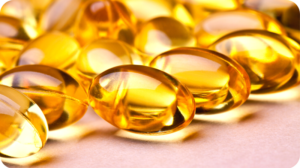If you regularly experience itching, burning eyes that are overly sensitive to light and often noticeably red at the end of the day, you are likely dealing with dry eye. Not that’s it any consolation, but you are not alone. According to the American Optometric Association, more than 16 million Americans suffer from dry eye, many with the chronic version known as Dry Eye Syndrome (DES).

Fortunately, treating the condition is simple, inexpensive, and effective. However, taking action is essential; ignore dry eye and you risk more serious problems over time, including damage to the cornea and other parts of the eye.
Dry eye is caused by problems with your tears. You may think of them as simple salt water, but healthy tears are actually a mixture of water, oil, salts, enzymes, and mucus—all of which make tears perfect for lubricating eye surfaces. Under normal circumstances, your eyes produce tears throughout the day. You usually don’t realize it because excess fluid drains away down the tear ducts on the inside corners of your eyes, at the bridge of your nose.
Tears help maintain the tear film that protects the surface of your eyeball and keeps it smooth. When the tear film breaks down, the eyeball is subject to irritation and damage.
Dry eye is the result of either not producing enough tears because of dehydration, or creating tears that are flawed, such as tears that lack the right amount of oil. The causes of dry eye are many. They range from aging, to gender (women are more susceptible than men), a poor diet, too much screen time, exposure to harsh natural elements like strong direct sun or dusty wind, and even cosmetics.
The condition can also be a side effect of common medications, including antihistamines, acne drugs, beta-blockers, some stomach-acid medications, certain anti-depressants, birth control or hormone therapy, and chemotherapy drugs (or radiation therapy). Contact lenses and refractive surgery also often cause dry eye. Of course, it can also be a symptom of more serious diseases, such as hypothyroidism or autoimmune diseases like fibromyalgia.
In any case, the first step toward relief is to replace the lost hydration. Do that by using eyedrops formulated for dry eye—preferably natural drops with no preservatives. The fewer chemicals the better. You’ll also want to ensure you’re drinking enough water and eating a healthy diet with plenty of antioxidants. If the problem seems to occur regularly, you might also consider taking an eye-specific nutrient supplement, such as those containing vitamin A, lutein, and zeaxanthin.
Here are some simple guidelines for easy and effective eye drop use:
- Wash your hands thoroughly.
- Tip your head all the way back and open your eye wide.
- Pinch a pocket in the lower eyelid and pull it out as far as you can without causing pain.
- Hold the eyedrop applicator over the middle of the eye (judge as best you can). Squeeze in the recommended number of drops.
- Squeeze your eyes shut and keep your head tilted all the way back. Press on the tear glands at the bridge of your nose to prevent fluid from draining too quickly and help the eyedrops absorb.
- Wipe any excess off the applicator tip with a clean tissue, and then dab any moisture off your face.
Your next line of defense and treatment is to limit environmental irritants. If you live in a colder part of the country and your heat source dries out inside air, use a humidifier. Take a break from looking at screens—5 minutes for every 45 minutes of screen time. Always wear sunglasses when you’re outside, and use goggles if you’re an avid swimmer. A moist-heat eye mask can provide nighttime relief for extremely irritated dry eyes. If dry eye symptoms persist for more than a week, or get worse, consult your ophthalmologist.
Show some love if you liked this post!







